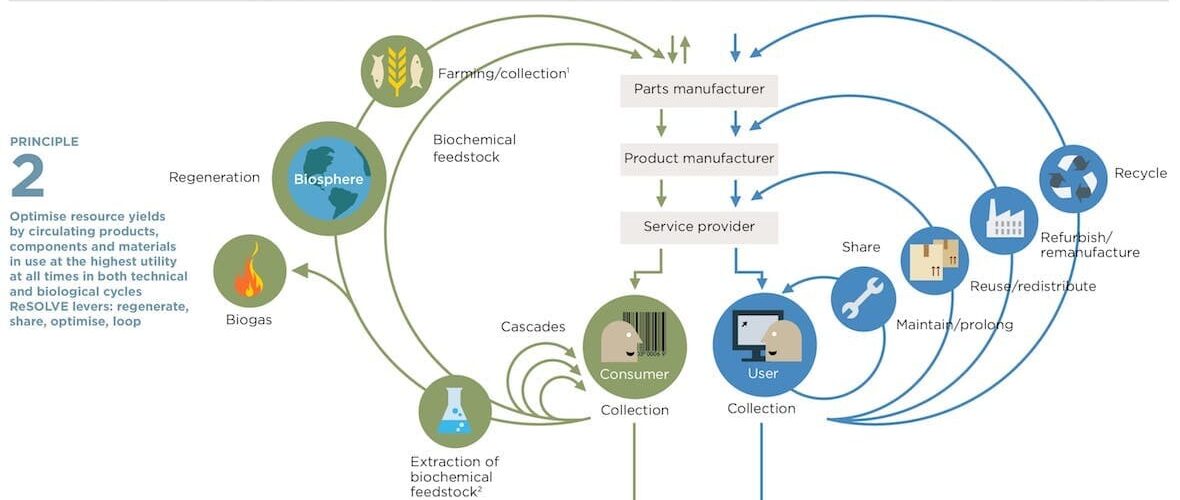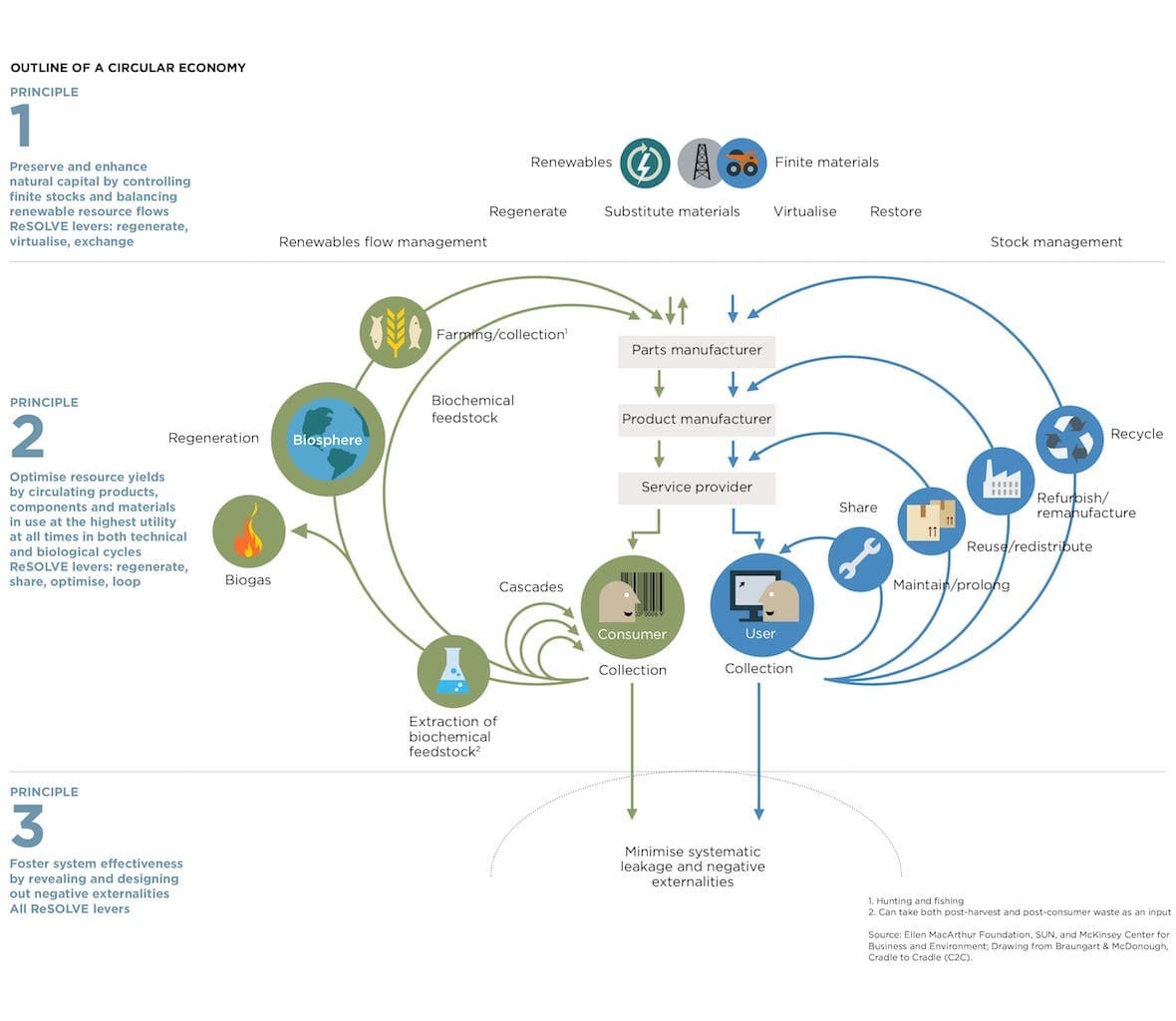Circular Economy
Resource scarcity, the climate and biodiversity crises, changing consumer attitudes, and cost are driving a change away from traditional business models. This has led to increasing industry commitment, investment, and action to move away from linear “take-make-dispose” approaches, towards “closed-loop” and circular systems
Read more
Current Trajectory
Business models that better capture the value of resources, and design out vast and unnecessary waste are entering the mainstream and those companies which fail to invest in circular economics could lose competitive advantages to those capitalising on circular resource loops and new consumer use models.
Furthermore, COVID-19 has revealed the urgent need for increased resilience of local supply chains and business models. Instead of material throughput efficiency, the need for circular business models, adaptability, and local business relationships has become clear for communities, businesses, and governments
Implications
According to the World Economic Forum, the pandemic has put such severe constraints on the current economic model, that they expect to see a new operating model emerging for our economies – which is in line with the fundamentals of a circular economy.

Source: Ellen MacArthur Foundation
https://www.ellenmacarthurfoundation.org/assets/images/circular-economy/System_diagram_cropped.jpg
Supporting evidence
- Only around 9% of the world’s resources are currently cycled back into the economy after use (2018) https://www.circle-economy.com/news/the-circularity-gap-report-our-world-is-only-9-circular#.XXd69S5KiUk.
- China and the EU have signed a joint Memorandum of Understanding to align on policies that support the transition to a circular economy https://ec.europa.eu/environment/circular-economy/pdf/circular_economy_MoU_EN.pdf.
- Park 20|20: an Amsterdam business park claims to be the world’s first cradle to cradle business community, with a focus on design for disassembly; material banking for each individual building: and leasing of products. https://mcdonoughpartners.com/projects/park-2020-master-plan/.
- Groupe Renault has been investing in circular economic design, manufacturing and use principles since 1995, with an accelerating focus on circularity in the last five years. Renault’s circularity initiatives include material loops, part loops, and broadening mobility services to substantially reduce the company’s footprint. https://group.renault.com/en/our-commitments/respect-for-the-environment/circular-economy/
- More than 450 companies and organisations have signed a global commitment to implement a circular economy for plastics focused on eliminating, innovating, and circulating. https://www.ellenmacarthurfoundation.org/our-work/activities/new-plastics-economy/global-commitment
- Apparel company Timberland has announced targets that all its products will be circular and net positive by 2030. https://sustainablebrands.com/read/product-service-design-innovation/all-timberland-products-to-be-100-circular-net-positive-by-2030?utm_source=newsletter&utm_medium=email&utm_campaign=nl_200903

Join discussion